Civil Rights / Cold War
Country Music
During the 1950s, Nashville became known as the capital of country music. Its adopted nickname was “Music City.”
The rise of radio during the 1920s helped establish Nashville as the center of the country music recording industry. The Grand Ole Opry radio show encouraged both performers and producers to move to Nashville.
Ernest Tubb was a legendary figure both for his music and for his reputation for helping other singers. In 1947 he opened the Ernest Tubb Record Shop in Nashville and broadcast the Midnight Jamboree show live from his shop after the Grand Ole Opry show finished. Through his show Tubb showcased new talent, promoting them to record companies.
These singers included such later stars as Hank Williams , Hank Snow, Patsy Cline , the Wilburn Brothers, Johnny Cash , and Loretta Lynn. Through promoting others, Tubb became known as the industry’s most generous and selfless star.
These singers included such later stars as Hank Williams , Hank Snow, Patsy Cline , the Wilburn Brothers, Johnny Cash , and Loretta Lynn. Through promoting others, Tubb became known as the industry’s most generous and selfless star.
Nashville native Kitty Wells learned to play the guitar when she was a young girl. She was performing on the stage in the 1930s. In 1952 she recorded a song, “It Wasn’t God Who Made Honky-Tonk Angels.” This became the first song recorded by a female to reach number one on the country music charts. She continued to produce hits into the 1960s.
Madisonville’s Eddy Arnold was truly the first post-war country superstar, even though his musical style was more mainstream than many country singers. Arnold had 53 top ten country hits, more than any other performer of his time. Click for more information about Arnold.
Alabama native Hank Williams was the one of the most charismatic country music stars. Born poor, much of his musical inspiration came from hard work, life tragedy, and his love of blues music. Unlike many recording artists, Williams was a both songwriter and recording artist. He was legendary even before his untimely death in 1953.
Patsy Cline is considered the first modern country singer. Because her music was able to cross over into the mainstream market, she helped bring country music to a much broader audience. Unfortunately, she died in a plane crash in 1963, leaving younger artists like Loretta Lynn, Tammy Wynette and Brenda Lee to fill her shoes.
Loretta Lynn, who was a fan and later a friend of Patsy Cline, took her place as the queen of country music. Lynn was one of the leading country vocalists and songwriters in the 1960s and 1970s, with 68 solo and duet hits, including 16 number one hits.
A native of Kentucky, Lynn was persuaded to move to Nashville to record and work with Owen Bradley who had produced Patsy Cline. In 1970 she recorded one of her biggest hits, “Coal Miner’s Daughter.” She wrote a book about her life with the same title, and later it was made into a hit movie. Listen to part of this song.
http://tn4me.org/audio/Coal_Miners_Daughter.mp3
Because of the need for artists to put out hit songs regularly, a large support network built around the many recording artists. Session players like Chet Atkins helped define the modern country sound, as did record producers like Owen Bradley. Adkins also produced artists including Charley Pride , who in 1971 became the first African American artist to be named Entertainer of the Year by the Country Music Association.
Publishers like Fred Rose signed innovative songwriters such as Harlan Howard and Willie Nelson to contracts to write songs for the stars. This blend of talent worked to create the “Nashville Sound,” a pop-sounding style of country music.
As country music changed, it sometimes spun off new types of music such as bluegrass, an unique form pioneered by Bill Monroe in the 1930s.
The fast picking style that many are familiar with today was developed in the mid-1940s by Lester Flatt and Earl Scruggs, two former members of Monroe’s Blue Grass Boys. Listen to part of Bill Monroe and the Blue Grass Boys recording of "Blue Moon of Kentucky", a song written by Monroe.
The fast picking style that many are familiar with today was developed in the mid-1940s by Lester Flatt and Earl Scruggs, two former members of Monroe’s Blue Grass Boys. Listen to part of Bill Monroe and the Blue Grass Boys recording of "Blue Moon of Kentucky", a song written by Monroe.
http://tn4me.org/audio/Blue_Moon_Of_Kentucky.mp3
Starting after World War II, countless dreamers began moving to Nashville in hopes of becoming stars. Many worked the odd jobs that served country fans who flocked to Nashville each year. The effects of the country music industry brought business to Nashville and helped transform it into a modern urban city.
Civil Rights / Cold War >> Everyday Life >> Music >> Country Music
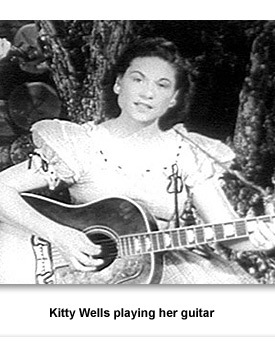
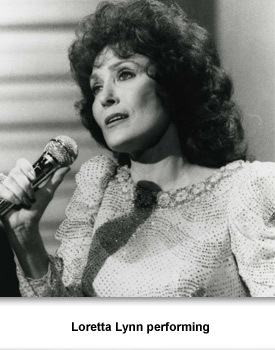
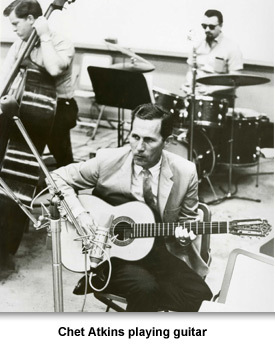
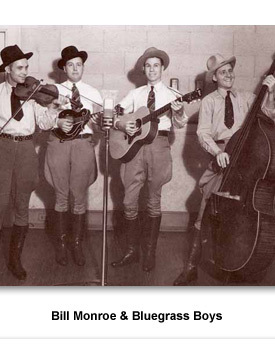
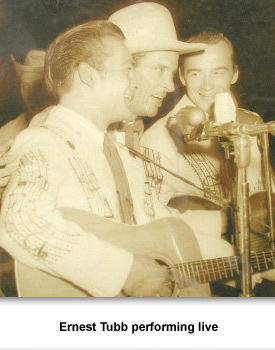
 Sponsored by: National Endowment for the Humanities
Sponsored by: National Endowment for the Humanities